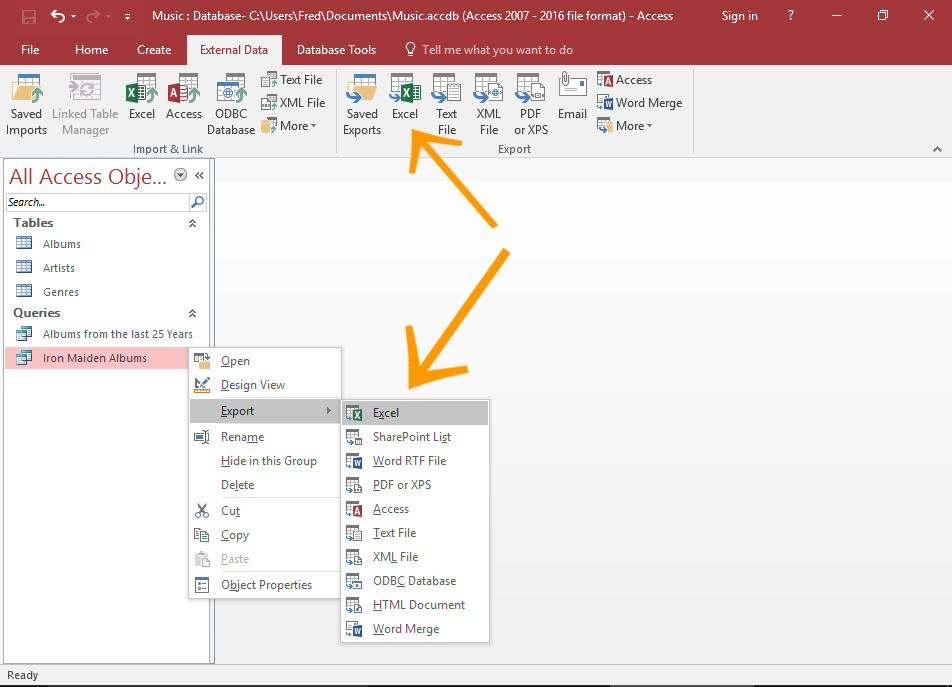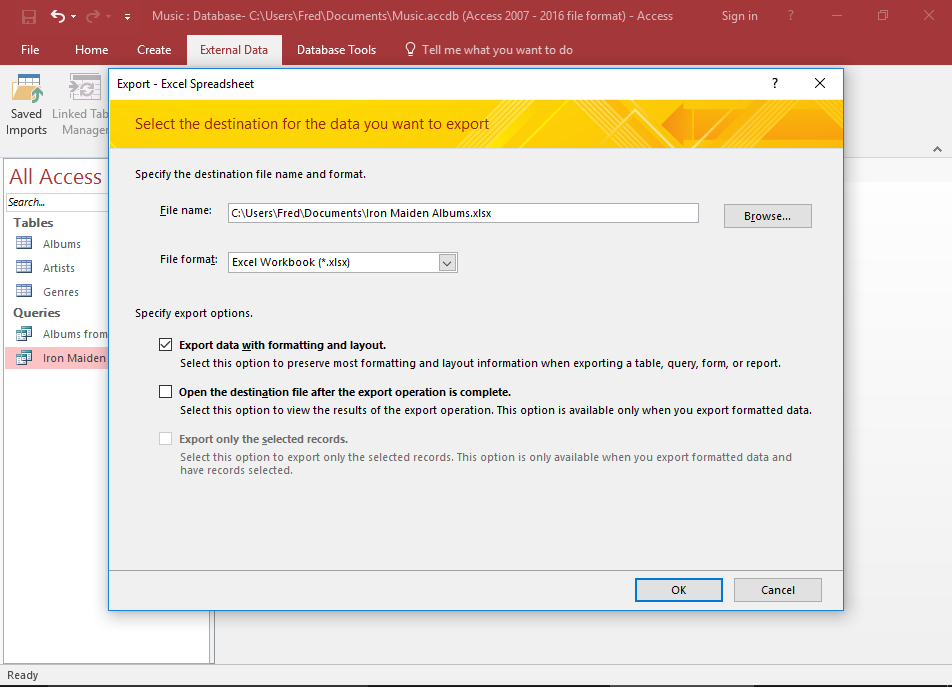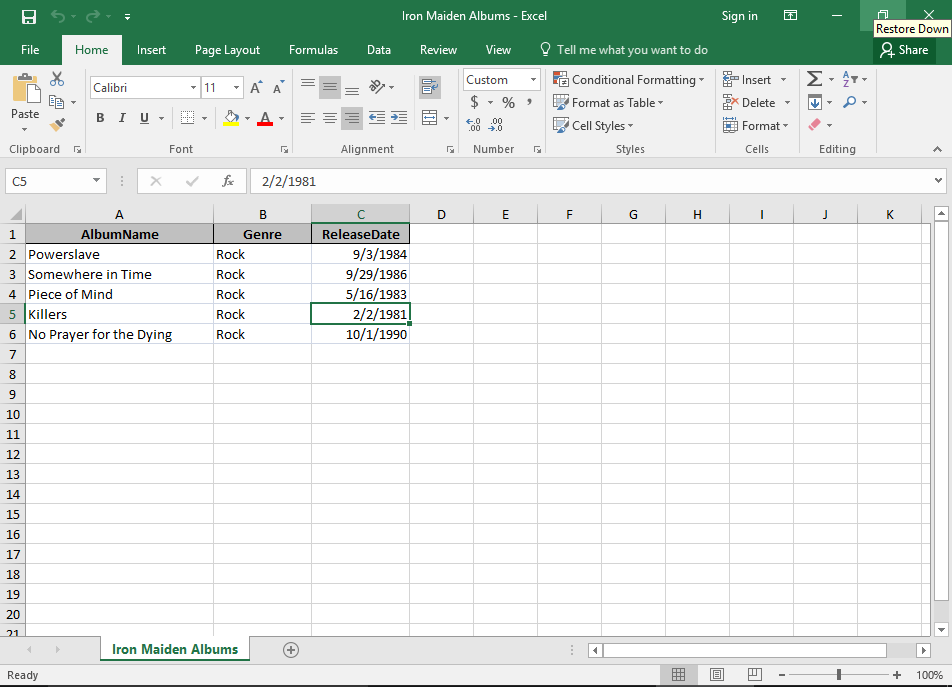Converting Microsoft Access files to Excel is a common task for users who need to manipulate or analyze data in Excel after storing or managing it in Access. Well, in this blog, I will discuss why you need to do this, the benefits, and a basic overview of the methods available to convert Access to Excel file effortlessly.

To repair corrupt Excel file, we recommend this tool:
This software will prevent Excel workbook data such as BI data, financial reports & other analytical information from corruption and data loss. With this software you can rebuild corrupt Excel files and restore every single visual representation & dataset to its original, intact state in 3 easy steps:
- Try Excel File Repair Tool rated Excellent by Softpedia, Softonic & CNET.
- Select the corrupt Excel file (XLS, XLSX) & click Repair to initiate the repair process.
- Preview the repaired files and click Save File to save the files at desired location.
Can You Convert Microsoft Access to Excel?
The answer to this question is Yes.
Microsoft Access database file can be easily converted to Excel document by copying and pasting, using Export Wizard or VBA. Besides, there are some other methods available that can assist you in doing so. All those ways are mentioned in this blog.
Why There Is a Need to Convert Access into Excel?
Here are some of the reasons why it is necessary to convert Access to Excel.
- Data Analysis– MS Excel offers robust features and functions for data analysis, including charts, pivot tables, and statistical functions that MS Access doesn’t.
- Reporting– After exporting the Access file to Excel, you can easily generate reports using its formatting & visualization capabilities.
- Data Sharing– Excel spreadsheets are easier to share with colleagues who may not have MS Access installed.
Benefits Of Converting Access to Excel
- Compatibility– Excel documents are supported with many other software applications.
- Ease of Use– MS Excel spreadsheets have a user-friendly interface that makes it easier for users to work with data.
- Visualization– Excel offers advanced graphing & charting tools that aren’t available in Microsoft Access.
How to Convert Access to Excel File?
There are a few ways mentioned below through which you will be able to convert Access database into Excel:
Method 1- Copy and Paste
This copy & paste method is the simplest one that might not even click anyone: to do this you just need to select the rows you need from Access (or select all using ⌘A) copy and paste them into Excel. That’s it your Access database is converted to Excel.
Also Read: How to Convert Text to Number in Excel (6 Easy Ways)
Method 2- Export Access Database To Excel
The next method is to export Access Database To Excel
Step 1: Opening the Access database file
At first, you need to open the Access database that contains the data you want to export in Excel.
For Access 2003 or earlier: Click on the File > Open
For Access 2007: Click on Office> Open
Step 2: Open the Export Dialog box
Go to the External Data tab and tap on the export group. From this group hit the Excel icon.

Step 3: Export Options
In the opened Window of Export – Excel spreadsheet check out the complete options. Here you will get the option to specify the destination file name and format.
After making all the setup, tap to the OK option to export the data.

Step 4: Save Export Steps
Access database application allows you to save the complete steps you have performed for exporting Access to Excel. For this you have to click on the option save export steps. This will allow you to quickly repeat the operation in the future without using the wizard.
Access gives you the option of saving the steps you just took, so that you can re-run them again later.

At last click to the close option to finish the export Access to Excel.
Step 5: View the Exported File
To view the exported file in Excel you need to go to the location which you have assigned in the save step.
Method 3- CSV File Format
Another method is that you can export your Access tables as CSV file and import those into Excel spreadsheet.
How MS Excel handles CSV files totally depends on the region setting in your System Preferences. For example, if you set your region to “United States”, Excel will then only expect International CSV files and if you set your region as to “Germany”, then Excel will expect Continental CSV files.
Excel file opens with CSV files in MacRoman encoding. Excel do not allow line breaks inside the fields, so be careful that you uncheck that option.
Method 4- Convert Access to Excel Using VBA (Visual Basic for Applications)
Running VBA code or macro can even help you get your job done. But remember that using VBA is one of the complex methods that requires technical knowledge or skills in code for Access file conversion.
To do so:
- Open your Access database >> press Alt + F11. This will open the VBA editor window.
- Now, insert a new module (Insert >> Module) from a menu bar.

- Next, run ‘ExportToExcel’ macro.
- Also, ensure to save the Access DB file before running the below code:
vba
Copy code
Sub ExportAccessToExcel()
Dim accApp As Object
Set accApp = CreateObject(“Access.Application”)
accApp.OpenCurrentDatabase “C:\Path\To\Your\Database.accdb”
accApp.DoCmd.TransferSpreadsheet acExport, acSpreadsheetTypeExcel12Xml, “TableName”, “C:\Path\To\Your\Output\File.xlsx”, True
accApp.CloseCurrentDatabase
accApp.Quit
Set accApp = Nothing
End Sub
How to Convert Access File to Excel Online?
You can easily convert Access file to Excel online by following these steps:
- Open your web browser on your computer.
- Then visit https://www.rebasedata.com/convert-accdb-to-excel-online site.
- Now, drag and drop or upload the Access database file there >> click “Convert” option and later download it.

Frequently Asked Questions:
To open an .accdb file in Excel, you have to:
No, excel cannot replace Access, they are two different tools. Microsoft Excel is a spreadsheet used for numerical analysis and Access is a database used for manipulation of data.
If you export and have 'export with formatting and layout' ticked, you will be limited to 65000 rows. How Do I Open an Access File in Excel?
Can Excel Replace Access?
What Is the Export Limit for Microsoft Access?
Wrapping Up
Exporting data from MS Access to Excel is a forthright process that can enhance your ability to analyze, share, and report on your data. Whether using VBA scripting, built-in tools, 3rd-party software, or other efficient ways outlined in this post, this conversion can streamline workflows & make data more accessible and useful.
For additional questions concerning the ones presented above, you can visit our Facebook & Twitter pages.

